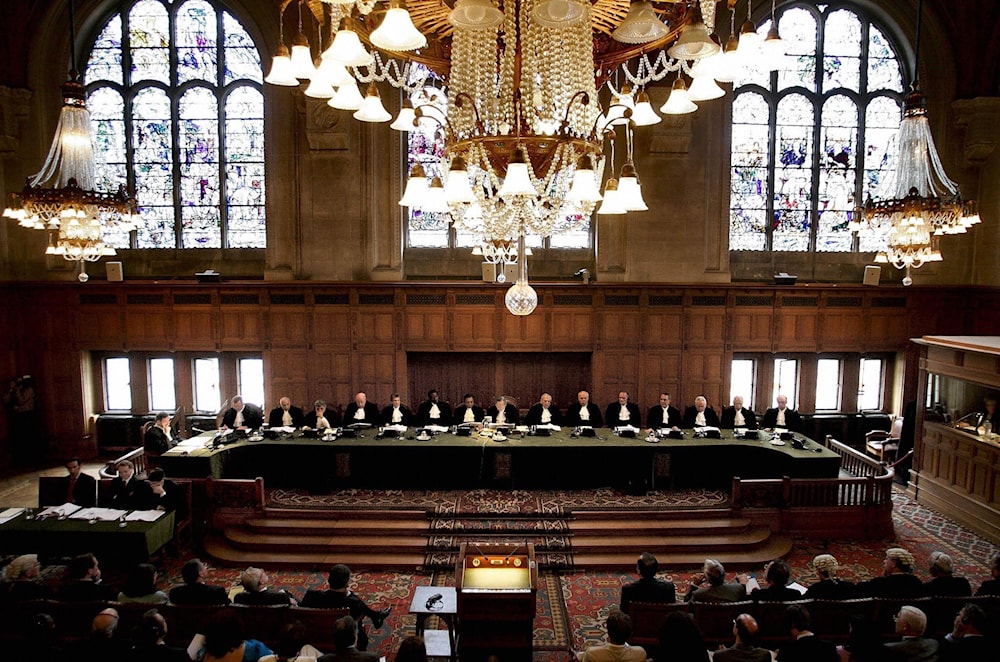Venezuela submits argument to ICJ regarding Essequibo region
The Guyana government welcomes Caracas' decision to engage on the matter through The Hague.
-

General view of the International Court of Justice (ICJ) in session in January 2024 (AFP)
Venezuela has provided a written document to the International Court of Justice ICJ in response to Guyana's case regarding their dispute over the Essequibo region, ICJ Associate Information Officer Avo Sevag Garabet informed RIA Novosti on Tuesday.
The Hague had previously established a deadline for Venezuela to submit all court documents by April 8, 2024.
Read more: US seeks to 'militarize' Venezuela-Guyana disputed territory
The spokesperson confirmed the receipt of Venezuela's documents, stating that the progression of the process depends on several factors, such as the potential initiation of another case. He mentioned that after the completion of the written proceedings, public hearings might begin unless the court approves a second round of document exchange.
The Guyana government welcomed on Monday Caracas' action.
“Guyana has repeatedly called on Venezuela to participate fully in the judicial proceedings and comply with the Court’s rulings, and therefore welcomes Venezuela’s submissions on the substantive issues that the Court will ultimately decide,” the Foreign Ministry said.
Venezuela achieved independence from Spain in 1845, with Essequibo acknowledged as part of its territory. However, in 1899, Britain filed a successful arbitration claim to establish Essequibo as part of its then-Caribbean colony of British Guiana.
On December 15, Guyana and Venezuela agreed to avert the use of force and threats to settle the disputed Essequibo territory to resolve matters of conflict within international law, such as the 1966 Geneva Agreement.
Two weeks ago, Venezuela's National Assembly (AN) unanimously approved the Law for the Defense of the Guayana Esequiba.
Venezuelan Vice President Delcy Rodriguez said on Monday that her country will be presenting documents before the International Court of Justice that prove Venezuela's right to Essequibo, amid its dispute over the territory with Guyana.
Last week, President Nicolas Maduro said he had verified intel about secret military bases established by the US Southern Command and the Central Intelligence Agency (CIA) in Essequibo "to prepare for launching attacks on the residents of Tumeremo and southeastern Venezuela."
Maduro also said that the Southern Command, the CIA, and US oil company ExxonMobil are governing the disputed region to exploit his country's resources.
Guyana's President, Mohamed Irfaan Ali, stated earlier that Georgetown sees Venezuela's actions as a threat to Guyana's national security.

 3 Min Read
3 Min Read








